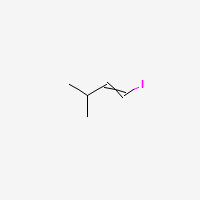Accessing PubChem through PUG-REST: Part III#
About this interactive  recipe
recipe
Author(s): Sunghwan Kim
Reviewer: Samuel Munday
Topic(s): How to retrieve chemical data using chemical identifiers.
Format: Interactive Jupyter Notebook (Python)
Scenario: You need to access and potentially download chemical data.
Skills: You should be familar with:
Learning outcomes:
How to access PubChem chemical data using a chemical identifiers
How to search PubChem using 2-D and 3-D molecular similarity
How to search PubChem using substructures and superstructures
Citation: ‘Accessing PubChem through PUG-REST - Part III’, Sunghwan Kim, The IUPAC FAIR Chemistry Cookbook, Contributed: 2023-02-28 https://w3id.org/ifcc/IFCC008.
Reuse: This notebook is made available under a CC-BY-4.0 license.
import requests
import time
import io
import csv
from IPython.display import Image, display
1. Using a SMILES or InChI string as an input query#
smiles = "CC(=O)OC1=CC=CC=C1C(=O)O"
print(requests.get("https://pubchem.ncbi.nlm.nih.gov/rest/pug/compound/smiles/" + smiles + "/cids/txt").text.strip())
2244
Some SMILES strings contain characters not compatible with the PUG-REST request URL syntax. For example, isomeric SMILES uses the “/” character (forward slash) to represent the E/Z or cis/trans stereochemistry of a molecule. However, because the “/” character is also used in the request URL to separate the segments of the URL path, the use of such SMILES strings as an input structure will result an error.
smiles = "CC(C)C1=NC(=NC(=C1/C=C/[C@H](C[C@H](CC(=O)O)O)O)C2=CC=C(C=C2)F)N(C)S(=O)(=O)C"
print(requests.get("https://pubchem.ncbi.nlm.nih.gov/rest/pug/compound/smiles/" + smiles + "/cids/txt").text.strip())
Status: 400
Code: PUGREST.BadRequest
Message: Unable to standardize the given structure - perhaps some special characters need to be escaped or data packed in a MIME form?
Detail: error:
Detail: status: 400
Detail: output: Caught ncbi::CException: Standardization failed
Detail: Output Log:
Detail: Record 1: Warning: Cactvs Ensemble cannot be created from input string
Detail: Record 1: Error: Unable to convert input into a compound object
Detail:
Detail:
To circumvent this issue, the SMILES input should be provided in one of the following two ways:
as a URL parameter
in the HTTP header (using the HTTP POST method).
smiles = "CC(C)C1=NC(=NC(=C1/C=C/[C@H](C[C@H](CC(=O)O)O)O)C2=CC=C(C=C2)F)N(C)S(=O)(=O)C"
# As a URL parameter
print(requests.get("https://pubchem.ncbi.nlm.nih.gov/rest/pug/compound/smiles/cids/txt" + "?smiles=" + smiles).text.strip())
# In the HTTP header (using HTTP Post)
print(requests.post("https://pubchem.ncbi.nlm.nih.gov/rest/pug/compound/smiles/cids/txt", data={'smiles':smiles}).text.strip())
446157
446157
InChI encodes the chemical structure information into multiple layers and sublayers, separated by the “/” character. For this reason, InChI strings should also be provided as a URL parameter or in the HTTP header (using HTTP host).
inchi = "InChI=1S/C9H8O4/c1-6(10)13-8-5-3-2-4-7(8)9(11)12/h2-5H,1H3,(H,11,12)"
# With the request URL : WILL NOT WORK
#print(requests.get("https://pubchem.ncbi.nlm.nih.gov/rest/pug/compound/inchi/" + inchi + "/cids/txt").text.strip())
# As a URL parameter
print(requests.get("https://pubchem.ncbi.nlm.nih.gov/rest/pug/compound/inchi/cids/txt" + "?inchi=" + inchi).text.strip())
# In the HTTP header (using HTTP Post)
print(requests.post("https://pubchem.ncbi.nlm.nih.gov/rest/pug/compound/inchi/cids/txt", data={'inchi':inchi}).text.strip())
2244
2244
2. Performing identity search#
smiles = "CC(C)/C=C/I"
# Compounds with the same stereochemistry and isotopism (default)
print(requests.get("https://pubchem.ncbi.nlm.nih.gov/rest/pug/compound/fastidentity/cid/14571425/cids/txt").text.strip())
print(requests.get("https://pubchem.ncbi.nlm.nih.gov/rest/pug/compound/fastidentity/cid/14571425/cids/txt?identity_type=same_stereo_isotope").text.strip())
14571425
14571425
# Compounds with the same isotopism (stereochemistry can be different)
cids1 = requests.post("https://pubchem.ncbi.nlm.nih.gov/rest/pug/compound/fastidentity/smiles/cids/txt?identity_type=same_isotope", data={'smiles':smiles}).text.strip().split()
print(cids1)
for mycid in cids1:
display(Image(requests.get("https://pubchem.ncbi.nlm.nih.gov/rest/pug/compound/cid/" + mycid + "/record/PNG?image_size=200x200").content))
print("CID " + mycid, ":", requests.get("https://pubchem.ncbi.nlm.nih.gov/rest/pug/compound/cid/" + mycid + "/property/IsomericSMILES/TXT").text)
time.sleep(0.2)
['14571425', '14571426', '71380237']

CID 14571425 : CC(C)/C=C/I

CID 14571426 : CC(C)/C=C\I

CID 71380237 : CC(C)C=CI
# Compounds with the same stereochemistry (isotopism can be different)
cids2 = requests.post("https://pubchem.ncbi.nlm.nih.gov/rest/pug/compound/fastidentity/smiles/cids/txt?identity_type=same_stereo", data={'smiles':smiles}).text.strip().split()
print(cids2)
for mycid in cids2:
display(Image(requests.get("https://pubchem.ncbi.nlm.nih.gov/rest/pug/compound/cid/" + mycid + "/record/PNG?image_size=200x200").content))
print("CID " + mycid, ":", requests.get("https://pubchem.ncbi.nlm.nih.gov/rest/pug/compound/cid/" + mycid + "/property/IsomericSMILES/TXT").text)
time.sleep(0.2)
['14571425', '118122558']

CID 14571425 : CC(C)/C=C/I

CID 118122558 : [2H]C[C@@H](C)/C=C/I
# Compounds with the same connectivity (stereochemistry and isotopism can be different)
cids3 = requests.post("https://pubchem.ncbi.nlm.nih.gov/rest/pug/compound/fastidentity/smiles/cids/txt?identity_type=same_connectivity", data={'smiles':smiles}).text.strip().split()
print(cids3) # All compounds in cids1 and cids2 are returned.
['14571425', '14571426', '71380237', '118122558', '123616558']
3. Performing 2-D and 3-D similarity search#
smiles = "CC1([C@@H]2[C@H]1[C@H](N(C2)C(=O)[C@H](C(C)(C)C)NC(=O)C(F)(F)F)C(=O)N[C@@H](C[C@@H]3CCNC3=O)C#N)C"
cids = requests.post("https://pubchem.ncbi.nlm.nih.gov/rest/pug/compound/fastsimilarity_2d/smiles/cids/txt", data={'smiles':smiles}).text.strip().split()
print(len(cids))
print(cids)
735
['155903259', '162396372', '162396442', '162396452', '162396458', '162685338', '162712460', '162712462', '162712482', '162712489', '162712498', '168290284', '162396453', '162396459', '163283236', '163283243', '163283284', '163361997', '163362001', '166149071', '166157194', '167203580', '167203608', '167331698', '167518234', '163421961', '168870655', '169194204', '171534254', '171843250', '172463305', '162396450', '162396460', '162396461', '162712471', '166157023', '166157057', '166157065', '166157205', '167331610', '167331612', '168291677', '171347857', '171355745', '169861544', '169861547', '172637678', '172675526', '172675527', '172675528', '176733177', '157010397', '168301133', '177382647', '162478807', '162479130', '163283238', '163283239', '163283322', '163283330', '163283343', '163283370', '163283371', '163283387', '163283390', '163283407', '163341926', '163361849', '163361998', '163362005', '163362008', '163362009', '163362014', '163362016', '163362026', '163362029', '163362031', '163941851', '164040179', '164158215', '164159966', '164701733', '164701736', '164701738', '164701741', '164701742', '164701743', '164701748', '164701749', '164701757', '164701758', '164701760', '164701766', '164701772', '164701773', '164701775', '164701776', '164701777', '164701789', '164701794', '164701800', '164701805', '164701807', '164701812', '164701813', '164701815', '164701816', '164701817', '164701818', '164701819', '164701821', '164766036', '164766041', '164785132', '164850071', '164971185', '165179472', '165179485', '165179486', '165179488', '166149062', '166149074', '166149077', '166149089', '166149094', '166149137', '166156664', '166156828', '166156836', '166157017', '166157043', '166157215', '166157269', '166494662', '166494843', '166537627', '166840326', '166840392', '166840457', '166840466', '166840731', '166891533', '166891547', '166891596', '166891665', '166893182', '166893274', '166893275', '166893276', '166893348', '166893351', '167065080', '167065082', '167065154', '167065160', '167094315', '167094316', '167094334', '167094341', '167203581', '167206597', '167206598', '167206599', '167206807', '167207061', '167229685', '167251496', '167278770', '167331630', '167331639', '167338845', '167338850', '167338914', '167338917', '167338943', '167480975', '167480997', '167481005', '167481033', '167481034', '167481037', '167481072', '167481103', '167481130', '167481158', '167481199', '167481201', '167481202', '167481210', '167481232', '167481234', '167481250', '167481257', '167481266', '167481309', '167481324', '167481327', '167481349', '167481356', '167481364', '167481374', '167481379', '167481386', '167481398', '167481400', '167481430', '167481462', '167481474', '167481480', '167481535', '167481542', '167481547', '167481557', '167481565', '167481566', '167481575', '167481608', '167481637', '167481640', '167481663', '167481675', '167481747', '167481808', '167481821', '167481860', '167481876', '167481880', '167481900', '167481908', '167481917', '167481924', '167481927', '167481929', '167481944', '167481950', '167481970', '167481972', '167481999', '167482005', '167482039', '167482043', '167482074', '167482083', '167482106', '167482167', '167482178', '167482205', '167482212', '167482213', '167482218', '167482232', '167482240', '167482261', '167482283', '167482292', '167482295', '167482314', '167482317', '167518190', '167521394', '167579537', '168142141', '168142152', '168142166', '168142167', '168142213', '168476190', '168750579', '168750586', '168750590', '168750593', '168878798', '168941969', '168942044', '169084224', '169122295', '169193197', '169193261', '169193357', '169193547', '169193552', '169193733', '169193751', '169193754', '169193839', '169193963', '169193968', '169194030', '169194114', '169194124', '169194140', '169194186', '169194236', '169194258', '169194427', '169240696', '169240697', '169240701', '169283836', '169283867', '169283881', '169291133', '169436363', '169595627', '169595871', '169595876', '169595900', '169595902', '169595937', '169595991', '169595994', '169597577', '169655654', '169655658', '169655661', '169655677', '169655713', '169655746', '169655747', '169655787', '169655789', '169676887', '169686050', '169686051', '169707956', '169707957', '169732235', '169732236', '169734644', '169735016', '169737661', '169816596', '169860851', '169860855', '169860863', '169860866', '169860882', '169861043', '169861121', '169861122', '169861123', '169861126', '169861127', '169861128', '169861209', '169861410', '169861545', '169861552', '169861641', '169861643', '169861899', '169861924', '169862040', '169878308', '169878350', '169878352', '169878353', '169878366', '169878439', '169878442', '169878445', '169878446', '169878447', '169878448', '169878449', '169878451', '169878452', '169878453', '169878455', '169878511', '169878514', '169878517', '169878631', '169907978', '169914647', '169914666', '169914913', '169966328', '169979396', '169979540', '169989970', '169994700', '169994701', '169994702', '169994703', '169994705', '169994745', '169994895', '169994956', '169995108', '169995153', '169995154', '169995401', '169995678', '169995679', '169995904', '170005512', '170036051', '170036248', '170036541', '170036799', '170036842', '170036848', '170036858', '170036928', '170036943', '170036979', '170037210', '170037247', '170038496', '170052972', '170052975', '170053129', '170053614', '170053627', '170053669', '170054633', '170054800', '170060745', '170060748', '170151866', '170164590', '170164688', '170164691', '170164767', '170165331', '170165489', '170165491', '170165562', '170165698', '170165798', '170166112', '170166207', '170166212', '170166479', '170166597', '170166774', '170166889', '170166912', '170166968', '170167024', '170167108', '170167453', '170167521', '170167675', '170167936', '170168021', '170203998', '170404012', '170552067', '170552068', '170631558', '170631565', '170631680', '170631745', '170701828', '170701834', '170701836', '170701844', '170701848', '170701854', '170701858', '171108715', '171108717', '171394959', '171530265', '171534270', '171843260', '172118140', '172118146', '172118147', '172118153', '172118162', '172118182', '172118188', '172118204', '172118214', '172118221', '172118226', '172118235', '172118239', '172118244', '172118277', '172118278', '172118286', '172118291', '172118304', '172118309', '172118317', '172118328', '172118346', '172118347', '172118353', '172118354', '172118355', '172118358', '172118360', '172579567', '172579762', '172579767', '174043420', '174069039', '174069040', '174069041', '174069062', '174069065', '174069070', '174069071', '174069150', '174073273', '174085845', '174259248', '174259921', '174302723', '174302767', '174303402', '175228386', '175228407', '175228408', '175228409', '175228411', '175228431', '175304768', '175304769', '175308990', '175439361', '175630662', '175700391', '175731481', '175825014', '175835137', '175836717', '175836727', '175854156', '175884142', '175904602', '175922034', '175933810', '175946547', '176202919', '176207539', '176207574', '176208729', '176208764', '176208769', '176208779', '176524542', '176586635', '176748792', '177035139', '168093174', '163285815', '166149063', '166156829', '167481104', '167482299', '167482300', '168010016', '168310836', '168310837', '168878799', '169240702', '171379688', '171530266', '176202920', '176486933', '176486996', '177035140', '177678933', '177831876', '177831881', '177833579', '177833580', '177835256', '177836342', '162712468', '162712490', '162712506', '163283283', '163362019', '164701798', '164701802', '164850073', '164850290', '166157157', '166964883', '166964886', '166964888', '166964890', '166964899', '166964903', '166964904', '166964908', '166964913', '166986000', '166986065', '166986067', '166986077', '167203321', '167481489', '167482130', '167537951', '167574477', '167574478', '167674037', '168154285', '168993735', '169084219', '169084221', '169084228', '169095061', '169193396', '169193437', '169193895', '169193967', '169193984', '169194217', '169194293', '169194319', '169194330', '169194348', '169595592', '169595872', '169595897', '169595998', '169655830', '169728040', '169728041', '169728431', '169728432', '169736642', '169736643', '169862121', '169914451', '169915447', '169915455', '169915574', '169995311', '170014641', '170036241', '170036499', '170036602', '170052965', '170053029', '170053921', '170080981', '170164555', '170165348', '170165794', '170165926', '170166075', '170167073', '170167420', '170167651', '170167680', '170168510', '170168543', '170200729', '170201013', '170291885', '172579449', '172579509', '174069052', '175825009', '175928484', '175928490', '175928921', '175933829', '176208762', '176357396', '176357397', '176357399', '176357404', '176357407', '176357410', '176357414', '176357416', '176357417', '176357418', '176357419', '176357420', '176357421', '176357425', '176357426', '176357427', '176357428', '176357429', '176357430', '176357433', '176357441', '176357445', '176357449', '176357462', '176357471', '176357518', '176584742', '176584743', '176584744', '176584745', '176584746', '176584748', '176584749', '176584750', '176584751', '176584753', '176584755', '176584757', '176584758', '176584759', '176584761', '176584762', '176584763', '176584764', '176584765', '176584766', '176584767', '176584768', '176584769', '176584770', '176584771', '176584772', '176584773', '176584774', '176584775', '176584776', '166642632', '168993728', '173640832', '173640862', '176489140', '177828894', '177831882', '177831883', '177831884', '177831885']
You can adjust the similarity threshold using the optional parameter “Threshold”. T The following request performs a 2-D similarity search with a tighter similarity threshold (95)
smiles = "CC1([C@@H]2[C@H]1[C@H](N(C2)C(=O)[C@H](C(C)(C)C)NC(=O)C(F)(F)F)C(=O)N[C@@H](C[C@@H]3CCNC3=O)C#N)C"
cids = requests.post("https://pubchem.ncbi.nlm.nih.gov/rest/pug/compound/fastsimilarity_2d/smiles/cids/txt?Threshold=99", data={'smiles':smiles}).text.strip().split()
print(len(cids))
print(cids)
112
['155903259', '168290284', '162396459', '163362001', '166157194', '167331698', '172463305', '169861544', '168301133', '163341926', '163361849', '163362005', '163362031', '164040179', '164701758', '164701760', '164701812', '164701813', '164701818', '167065082', '167094315', '167094316', '168476190', '169240696', '169595994', '169686051', '169707956', '169707957', '169860851', '169860863', '169861121', '169861123', '169861545', '169914913', '170060748', '170404012', '170701834', '171394959', '171530265', '174069039', '174069041', '175308990', '175854156', '175884142', '175922034', '177035139', '163285815', '169240702', '176202920', '176486933', '177678933', '177831876', '177831881', '177836342', '176357397', '176357399', '176357404', '176357407', '176357410', '176357414', '176357416', '176357417', '176357419', '176357420', '176357421', '176357425', '176357426', '176357428', '176357429', '176357430', '176357433', '176357441', '176357445', '176357462', '176357471', '176357518', '176584742', '176584743', '176584744', '176584745', '176584746', '176584748', '176584749', '176584750', '176584751', '176584753', '176584755', '176584757', '176584758', '176584759', '176584761', '176584762', '176584763', '176584764', '176584765', '176584766', '176584767', '176584768', '176584769', '176584770', '176584771', '176584772', '176584773', '176584774', '176584775', '176584776', '166642632', '173640832', '176489140', '177831882', '177831883', '177831885']
Note that the use of the higher threshold (99) than the default (90) results in fewer structures.
It is also possible to get line notations and molecular properties for the compounds returned from chemical structure search.
data = requests.post("https://pubchem.ncbi.nlm.nih.gov/rest/pug/compound/fastsimilarity_2d/smiles/property/HeavyAtomCount,MolecularFormula,IsomericSMILES/csv?Threshold=99", data={'smiles':smiles}).text.strip()
print(data)
"CID","HeavyAtomCount","MolecularFormula","SMILES"
155903259,35,"C23H32F3N5O4","CC1([C@@H]2[C@H]1[C@H](N(C2)C(=O)[C@H](C(C)(C)C)NC(=O)C(F)(F)F)C(=O)N[C@@H](C[C@@H]3CCNC3=O)C#N)C"
168290284,35,"C23H32F3N5O4","CC1([C@@H]2[C@H]1[C@H](N(C2)C(=O)[C@H](C(C)(C)C)NC(=O)C(F)(F)F)C(=O)N[C@@H](C[C@H]3CCNC3=O)C#N)C"
162396459,35,"C23H32F3N5O4","CC1([C@@H]2[C@H]1[C@H](N(C2)C(=O)[C@H](C(C)(C)C)NC(=O)C(F)(F)F)C(=O)N[C@H](C[C@@H]3CCNC3=O)C#N)C"
163362001,35,"C23H32F3N5O4","CC(C)C[C@@H](C(=O)N1C[C@H]2[C@@H]([C@H]1C(=O)N[C@@H](C[C@@H]3CCNC3=O)C#N)C2(C)C)NC(=O)C(F)(F)F"
166157194,34,"C23H33F2N5O4","CC1([C@@H]2[C@H]1[C@H](N(C2)C(=O)[C@H](C(C)(C)C)NC(=O)C(F)F)C(=O)N[C@@H](C[C@@H]3CCNC3=O)C#N)C"
167331698,34,"C23H33F2N5O4","CC(C)C[C@@H](C(=O)N1C[C@H]2[C@@H]([C@H]1C(=O)N[C@@H](C[C@@H]3CCNC3=O)C#N)C2(C)C)NC(=O)C(F)F"
172463305,35,"C23H32F3N5O4","CC1([C@@H]2[C@H]1[C@H](N(C2)C(=O)[C@@H](C(C)(C)C)NC(=O)C(F)(F)F)C(=O)N[C@@H](C[C@@H]3CCNC3=O)C#N)C"
169861544,38,"C25H37F3N6O4","CC1([C@@H]2[C@H]1[C@H](N(C2)C(=O)[C@H](CCCCN(C)C)NC(=O)C(F)(F)F)C(=O)N[C@@H](C[C@@H]3CCNC3=O)C#N)C"
168301133,35,"C23H32F3N5O4","CC1([C@@H]2[C@H]1C(N(C2)C(=O)C(C(C)(C)C)NC(=O)C(F)(F)F)C(=O)N[C@@H](C[C@@H]3CCNC3=O)C#N)C"
163341926,35,"C23H32F3N5O4","CC1(C2C1C(N(C2)C(=O)C(C(C)(C)C)NC(=O)C(F)(F)F)C(=O)NC(CC3CCNC3=O)C#N)C"
163361849,35,"C23H32F3N5O4","CC1([C@@H]2[C@H]1[C@H](N(C2)C(=O)[C@H](C(C)(C)C)NC(=O)C(F)(F)F)C(=O)N[C@@H](CC3CCNC3=O)C#N)C"
163362005,35,"C23H32F3N5O4","CC(C)[C@@H](C(=O)N1C[C@H]2[C@@H]([C@H]1C(=O)N[C@@H](C[C@@H]3CCNC3=O)C#N)C2(C)C)NC(=O)CC(F)(F)F"
163362031,36,"C24H34F3N5O4","CC1([C@@H]2[C@H]1[C@H](N(C2)C(=O)[C@H](CC(C)(C)C)NC(=O)C(F)(F)F)C(=O)N[C@@H](C[C@@H]3CCNC3=O)C#N)C"
164040179,36,"C24H36F3N5O4","C.CC1([C@@H]2[C@H]1[C@H](N(C2)C(=O)[C@H](C(C)(C)C)NC(=O)C(F)(F)F)C(=O)N[C@@H](C[C@@H]3CCNC3=O)C#N)C"
164701758,35,"C23H32F3N5O4","CC(C)[C@@H](C(=O)N1CC2C(C1C(=O)N[C@@H](C[C@@H]3CCNC3=O)C#N)C2(C)C)NC(=O)CC(F)(F)F"
164701760,36,"C24H34F3N5O4","CC1(C2C1C(N(C2)C(=O)[C@H](CC(C)(C)C)NC(=O)C(F)(F)F)C(=O)N[C@@H](C[C@@H]3CCNC3=O)C#N)C"
164701812,35,"C23H32F3N5O4","CC1(C2C1C(N(C2)C(=O)[C@H](C(C)(C)C)NC(=O)C(F)(F)F)C(=O)N[C@@H](C[C@@H]3CCNC3=O)C#N)C"
164701813,35,"C23H32F3N5O4","CC(C)C[C@@H](C(=O)N1CC2C(C1C(=O)N[C@@H](C[C@@H]3CCNC3=O)C#N)C2(C)C)NC(=O)C(F)(F)F"
164701818,35,"C23H32F3N5O4","CC1(C2C1C(N(C2)C(=O)[C@H](C(C)(C)C)NC(=O)C(F)(F)F)C(=O)N[C@H](C[C@@H]3CCNC3=O)C#N)C"
167065082,35,"C23H32F3N5O4","CC1(C2C1[C@H](N(C2)C(=O)C(C(C)(C)C)NC(=O)C(F)(F)F)C(=O)N[C@@H](C[C@@H]3CCNC3=O)C#N)C"
167094315,35,"C23H32F3N5O4","CC1([C@@H]2[C@H]1[C@H](N(C2)C(=O)C(C(C)(C)C)NC(=O)C(F)(F)F)C(=O)N[C@@H](C[C@@H]3CCNC3=O)C#N)C"
167094316,35,"C23H32F3N5O4","CC1([C@H]2C1CN([C@@H]2C(=O)N[C@@H](C[C@@H]3CCNC3=O)C#N)C(=O)C(C(C)(C)C)NC(=O)C(F)(F)F)C"
168476190,35,"C23H32F3N5O4","[2H]C1(C[C@H](C(=O)N1)C[C@@H](C#N)NC(=O)[C@@H]2[C@@H]3[C@@H](C3(C)C)CN2C(=O)[C@H](C(C)(C)C)NC(=O)C(F)(F)F)[2H]"
169240696,35,"C23H32F3N5O4","CC1(C2C1C(N(C2)C(=O)[C@H](C(C)(C)C)N([C@@H](C[C@@H]3CCNC3=O)C#N)C(=O)C(F)(F)F)C(=O)N)C"
169595994,35,"C24H35F2N5O4","CC(C)C[C@@H](C(=O)N1C[C@]2([C@@H]([C@H]1C(=O)N[C@@H](C[C@@H]3CCNC3=O)C#N)C2(C)C)C)NC(=O)C(F)F"
169686051,35,"C23H32F3N5O4","CC1([C@H]2C1CN([C@@H]2C(=O)N[C@@H](C[C@@H]3CCNC3=O)C#N)C(=O)[C@H](C(C)(C)C)NC(=O)C(F)(F)F)C"
169707956,35,"C23H32F3N5O4","CC1([C@@H]2[C@H]1[C@H](N(C2)C(=O)C(C(C)(C)C)NC(=O)C(F)(F)F)C(=O)NC(C[C@@H]3CCNC3=O)C#N)C"
169707957,35,"C23H32F3N5O4","CC1([C@@H]2[C@H]1[C@H](N(C2)C(=O)C(C(C)(C)C)NC(=O)C(F)(F)F)C(=O)N[C@@H](CC3CCNC3=O)C#N)C"
169860851,38,"C25H37F3N6O4","CC1(C2C1C(N(C2)C(=O)C(CCCCN(C)C)NC(=O)C(F)(F)F)C(=O)NC(CC3CCNC3=O)C#N)C"
169860863,37,"C24H35F3N6O4","CC1(C2C1C(N(C2)C(=O)C(CCCN(C)C)NC(=O)C(F)(F)F)C(=O)NC(CC3CCNC3=O)C#N)C"
169861121,38,"C25H37F3N6O4","CC1([C@@H]2[C@H]1[C@H](N(C2)C(=O)C(CCCCN(C)C)NC(=O)C(F)(F)F)C(=O)N[C@@H](CC3CCNC3=O)C#N)C"
169861123,37,"C24H35F3N6O4","CC1([C@@H]2[C@H]1[C@H](N(C2)C(=O)C(CCCN(C)C)NC(=O)C(F)(F)F)C(=O)N[C@@H](CC3CCNC3=O)C#N)C"
169861545,37,"C24H35F3N6O4","CC1([C@@H]2[C@H]1[C@H](N(C2)C(=O)[C@H](CCCN(C)C)NC(=O)C(F)(F)F)C(=O)N[C@@H](C[C@@H]3CCNC3=O)C#N)C"
169914913,36,"C24H34F3N5O4","CC1([C@@H]2[C@H]1[C@H](N(C2)C(=O)[C@H](C(C)(C)C)NC(=O)CC(F)(F)F)C(=O)N[C@@H](C[C@@H]3CCNC3=O)C#N)C"
170060748,35,"C23H32F3N5O4","CC1([C@@H]2[C@H]1[C@H](N(C2)C(=O)[C@H](C(C)(C)C)NC(=O)C(F)(F)F)C(=O)NC(C[C@@H]3CCNC3=O)C#N)C"
170404012,35,"C23H32F3N5O4","CC1([C@@H]2[C@H]1C(N(C2)C(=O)[C@H](C(C)(C)C)NC(=O)C(F)(F)F)C(=O)N[C@@H](C[C@@H]3CCNC3=O)C#N)C"
170701834,35,"C23H32F3N5O4","CC1([C@@H]2[C@H]1[C@H](N(C2)C(=O)[C@H](C(C)(C)C)NC(=O)C(F)(F)F)C(=O)NCC[C@H]3C[C@H](NC3=O)C#N)C"
171394959,35,"C23H32F3N5O4","CC1([C@@H]2[C@H]1[C@H](N(C2)C(=O)[C@H](C(C)(C)C)NC(=O)C(F)(F)F)C(=O)N[C@H](C[C@H]3CCNC3=O)C#N)C"
171530265,35,"C23H34F3N5O4","CC(C)C.CC1(C2C1C(N(C2)C(=O)CNC(=O)C(F)(F)F)C(=O)N[C@@H](C[C@@H]3CCNC3=O)C#N)C"
174069039,36,"C24H34F3N5O4","C[C@H]1CNC(=O)[C@@H]1C[C@@H](C#N)NC(=O)[C@@H]2[C@@H]3[C@@H](C3(C)C)CN2C(=O)[C@H](C(C)(C)C)NC(=O)C(F)(F)F"
174069041,35,"C23H32F3N5O4","C[C@H]1CNC(=O)[C@@H]1C[C@@H](C#N)NC(=O)[C@@H]2[C@@H]3[C@@H](C3(C)C)CN2C(=O)[C@H](C(C)C)NC(=O)C(F)(F)F"
175308990,35,"C23H32F3N5O4","CC1([C@@H]2[C@H]1[C@H](N(C2)C(=O)C(C(C)(C)C)NC(=O)C(F)(F)F)C(=O)NC(CC3CCNC3=O)C#N)C"
175854156,35,"C23H32F3N5O4","CC1([C@H]2[C@@H]1[C@@H](N(C2)C(=O)[C@H](C(C)(C)C)NC(=O)C(F)(F)F)C(=O)N[C@@H](C[C@@H]3CCNC3=O)C#N)C"
175884142,35,"C23H32F3N5O4","CC1([C@@H]2[C@H]1[C@H](N(C2)C(=O)[C@H](C(C)(C)C)NC(=O)C(F)(F)F)C(=O)NCC(C#N)[C@@H]3CCNC3=O)C"
175922034,35,"C23H32F3N5O4","CC1([C@@H]2C1[C@H](N(C2)C(=O)[C@H](C(C)(C)C)NC(=O)C(F)(F)F)C(=O)N[C@@H](C[C@@H]3CCNC3=O)C#N)C"
177035139,35,"C23H34F3N5O4","CC(C)C.CC1([C@@H]2C1[C@H](N(C2)C(=O)CNC(=O)C(F)(F)F)C(=O)N[C@@H](C[C@@H]3CCNC3=O)C#N)C"
163285815,35,"C23H32F3N5O4","CC1([C@@H]2[C@@H]1[C@H](N(C2)C(=O)[C@H](C(C)(C)C)NC(=O)C(F)(F)F)C(=O)N[C@@H](C[C@@H]3CCNC3=O)C#N)C"
169240702,35,"C23H32F3N5O4","CC1(C2C1[C@H](N(C2)C(=O)[C@H](C(C)(C)C)NC(=O)C(F)(F)F)C(=O)NC(C[C@@H]3CCNC3=O)C#N)C"
176202920,38,"C26H38F3N5O4","CC(C)[C@@]12[C@H](C1(C)C)CN([C@@H]2C(=O)N[C@@H](C[C@@H]3CCNC3=O)C#N)C(=O)[C@H](C(C)(C)C)NC(=O)C(F)(F)F"
176486933,35,"C23H32F3N5O4","CC1([C@@H]2[C@H]1[C@@H](N(C2)C(=O)[C@H](C(C)(C)C)NC(=O)C(F)(F)F)C(=O)N[C@@H](C[C@@H]3CCNC3=O)C#N)C"
177678933,35,"C23H32F3N5O4","CC1([C@H]2C1CN(C2C(=O)NC(CC3CCNC3=O)C#N)C(=O)[C@H](C(C)(C)C)NC(=O)C(F)(F)F)C"
177831876,35,"C23H32F3N5O4","CC1([C@@H]2[C@H]1[C@H](N(C2)C(=O)[C@@H](C(C)(C)C)NC(=O)C(F)(F)F)C(=O)N[C@H](C[C@@H]3CCNC3=O)C#N)C"
177831881,35,"C23H32F3N5O4","CC1([C@H]2[C@@H]1[C@@H](N(C2)C(=O)[C@@H](C(C)(C)C)NC(=O)C(F)(F)F)C(=O)N[C@H](C[C@H]3CCNC3=O)C#N)C"
177836342,35,"C23H32F3N5O4","CC1([C@@H]2[C@H]1[C@@H](N(C2)C(=O)[C@@H](C(C)(C)C)NC(=O)C(F)(F)F)C(=O)N[C@@H](C[C@@H]3CCNC3=O)C#N)C"
176357397,35,"C23H32F3N5O4","[2H][C@]1(CC(NC1=O)([2H])[2H])C[C@@H](C#N)NC(=O)[C@@]2([C@@H]3[C@@H](C3(C([2H])([2H])[2H])C([2H])([2H])[2H])CN2C(=O)[C@H](C(C([2H])([2H])[2H])(C([2H])([2H])[2H])C([2H])([2H])[2H])NC(=O)C(F)(F)F)[2H]"
176357399,35,"C23H32F3N5O4","[2H][C@]1(CC(NC1=O)([2H])[2H])C[C@@]([2H])(C#N)NC(=O)[C@@]2([C@@H]3[C@@H](C3(C([2H])([2H])[2H])C([2H])([2H])[2H])CN2C(=O)[C@H](C(C([2H])([2H])[2H])(C([2H])([2H])[2H])C([2H])([2H])[2H])NC(=O)C(F)(F)F)[2H]"
176357404,35,"C23H32F3N5O4","[2H][C@]1(CC(NC1=O)([2H])[2H])C[C@@]([2H])(C#N)NC(=O)[C@@H]2[C@@H]3[C@@H](C3(C([2H])([2H])[2H])C([2H])([2H])[2H])CN2C(=O)[C@H](C(C([2H])([2H])[2H])(C([2H])([2H])[2H])C([2H])([2H])[2H])NC(=O)C(F)(F)F"
176357407,35,"C23H32F3N5O4","[2H]C1(CNC(=O)[C@@H]1C([2H])([2H])[C@@H](C#N)NC(=O)[C@@H]2[C@@H]3[C@@H](C3(C([2H])([2H])[2H])C([2H])([2H])[2H])CN2C(=O)[C@H](C(C([2H])([2H])[2H])(C([2H])([2H])[2H])C([2H])([2H])[2H])NC(=O)C(F)(F)F)[2H]"
176357410,35,"C23H32F3N5O4","[2H][C@@]1(C(=O)NC(C1([2H])[2H])([2H])[2H])C[C@@H](C#N)NC(=O)[C@@]2([C@@H]3[C@@H](C3(C([2H])([2H])[2H])C([2H])([2H])[2H])CN2C(=O)[C@H](C(C([2H])([2H])[2H])(C([2H])([2H])[2H])C([2H])([2H])[2H])NC(=O)C(F)(F)F)[2H]"
176357414,35,"C23H32F3N5O4","[2H][C@@]1(C(=O)NC(C1([2H])[2H])([2H])[2H])C([2H])([2H])[C@@]([2H])(C#N)NC(=O)[C@@H]2[C@@H]3[C@@H](C3(C([2H])([2H])[2H])C([2H])([2H])[2H])CN2C(=O)[C@H](C(C([2H])([2H])[2H])(C([2H])([2H])[2H])C([2H])([2H])[2H])NC(=O)C(F)(F)F"
176357416,35,"C23H32F3N5O4","[2H][C@]1([C@@H]2[C@@H](C2(C([2H])([2H])[2H])C([2H])([2H])[2H])CN1C(=O)[C@H](C(C([2H])([2H])[2H])(C([2H])([2H])[2H])C([2H])([2H])[2H])NC(=O)C(F)(F)F)C(=O)N[C@@H](C[C@H]3C(=O)NC(C3([2H])[2H])([2H])[2H])C#N"
176357417,35,"C23H32F3N5O4","[2H][C@]1([C@@H]2[C@@H](C2(C([2H])([2H])[2H])C([2H])([2H])[2H])CN1C(=O)[C@]([2H])(C(C([2H])([2H])[2H])(C([2H])([2H])[2H])C([2H])([2H])[2H])NC(=O)C(F)(F)F)C(=O)N[C@]([2H])(C#N)C([2H])([2H])[C@]3(C(=O)NC(C3([2H])[2H])([2H])[2H])[2H]"
176357419,35,"C23H32F3N5O4","[2H][C@@]1(C(=O)NC(C1([2H])[2H])([2H])[2H])C[C@@H](C#N)NC(=O)[C@@H]2[C@@H]3[C@@H](C3(C([2H])([2H])[2H])C([2H])([2H])[2H])CN2C(=O)[C@H](C(C([2H])([2H])[2H])(C([2H])([2H])[2H])C([2H])([2H])[2H])NC(=O)C(F)(F)F"
176357420,35,"C23H32F3N5O4","[2H]C1([C@H](C(=O)NC1([2H])[2H])C[C@@H](C#N)NC(=O)[C@@H]2[C@@H]3[C@@H](C3(C([2H])([2H])[2H])C([2H])([2H])[2H])CN2C(=O)[C@H](C(C([2H])([2H])[2H])(C([2H])([2H])[2H])C([2H])([2H])[2H])NC(=O)C(F)(F)F)[2H]"
176357421,35,"C23H32F3N5O4","[2H][C@]1(CC(NC1=O)([2H])[2H])C[C@@H](C#N)NC(=O)[C@@H]2[C@@H]3[C@@H](C3(C([2H])([2H])[2H])C([2H])([2H])[2H])CN2C(=O)[C@H](C(C([2H])([2H])[2H])(C([2H])([2H])[2H])C([2H])([2H])[2H])NC(=O)C(F)(F)F"
176357425,35,"C23H32F3N5O4","[2H][C@]1(CC(NC1=O)([2H])[2H])C[C@@]([2H])(C#N)NC(=O)[C@@]2([C@@H]3[C@@H](C3(C([2H])([2H])[2H])C([2H])([2H])[2H])CN2C(=O)[C@]([2H])(C(C([2H])([2H])[2H])(C([2H])([2H])[2H])C([2H])([2H])[2H])NC(=O)C(F)(F)F)[2H]"
176357426,35,"C23H32F3N5O4","[2H][C@]1([C@@H]2[C@@H](C2(C([2H])([2H])[2H])C([2H])([2H])[2H])CN1C(=O)[C@H](C(C([2H])([2H])[2H])(C([2H])([2H])[2H])C([2H])([2H])[2H])NC(=O)C(F)(F)F)C(=O)N[C@@H](C[C@@H]3CC(NC3=O)([2H])[2H])C#N"
176357428,35,"C23H32F3N5O4","[2H][C@@]1(C(=O)NC(C1([2H])[2H])([2H])[2H])C[C@@H](C#N)NC(=O)[C@@]2([C@@H]3[C@@H](C3(C([2H])([2H])[2H])C([2H])([2H])[2H])CN2C(=O)[C@]([2H])(C(C([2H])([2H])[2H])(C([2H])([2H])[2H])C([2H])([2H])[2H])NC(=O)C(F)(F)F)[2H]"
176357429,35,"C23H32F3N5O4","[2H][C@@]1(C(=O)NC(C1([2H])[2H])([2H])[2H])C([2H])([2H])[C@@]([2H])(C#N)NC(=O)[C@@H]2[C@@H]3[C@@H](C3(C([2H])([2H])[2H])C([2H])([2H])[2H])CN2C(=O)[C@]([2H])(C(C([2H])([2H])[2H])(C([2H])([2H])[2H])C([2H])([2H])[2H])NC(=O)C(F)(F)F"
176357430,35,"C23H32F3N5O4","[2H][C@]1([C@@H]2[C@@H](C2(C([2H])([2H])[2H])C([2H])([2H])[2H])CN1C(=O)[C@H](C(C([2H])([2H])[2H])(C([2H])([2H])[2H])C([2H])([2H])[2H])NC(=O)C(F)(F)F)C(=O)N[C@]([2H])(C#N)C([2H])([2H])[C@]3(C(=O)NC(C3([2H])[2H])([2H])[2H])[2H]"
176357433,35,"C23H32F3N5O4","[2H][C@]1(CC(NC1=O)([2H])[2H])C[C@@H](C#N)NC(=O)[C@@]2([C@@H]3[C@@H](C3(C([2H])([2H])[2H])C([2H])([2H])[2H])CN2C(=O)[C@]([2H])(C(C([2H])([2H])[2H])(C([2H])([2H])[2H])C([2H])([2H])[2H])NC(=O)C(F)(F)F)[2H]"
176357441,35,"C23H32F3N5O4","[2H]C1(C[C@H](C(=O)N1)C([2H])([2H])[C@@H](C#N)NC(=O)[C@@H]2[C@@H]3[C@@H](C3(C([2H])([2H])[2H])C([2H])([2H])[2H])CN2C(=O)[C@H](C(C([2H])([2H])[2H])(C([2H])([2H])[2H])C([2H])([2H])[2H])NC(=O)C(F)(F)F)[2H]"
176357445,35,"C23H32F3N5O4","[2H]C1(C[C@H](C(=O)N1)C[C@@H](C#N)NC(=O)[C@@H]2[C@@H]3[C@@H](C3(C([2H])([2H])[2H])C([2H])([2H])[2H])CN2C(=O)[C@H](C(C([2H])([2H])[2H])(C([2H])([2H])[2H])C([2H])([2H])[2H])NC(=O)C(F)(F)F)[2H]"
176357462,35,"C23H32F3N5O4","[2H]C1([C@H](C(=O)NC1([2H])[2H])C([2H])([2H])[C@@H](C#N)NC(=O)[C@@H]2[C@@H]3[C@@H](C3(C([2H])([2H])[2H])C([2H])([2H])[2H])CN2C(=O)[C@H](C(C([2H])([2H])[2H])(C([2H])([2H])[2H])C([2H])([2H])[2H])NC(=O)C(F)(F)F)[2H]"
176357471,35,"C23H32F3N5O4","[2H]C1([C@H](C(=O)NC1([2H])[2H])C[C@@H](C#N)NC(=O)[C@@H]2[C@@H]3[C@@H](C3(C([2H])([2H])[2H])C([2H])([2H])[2H])CN2C(=O)[C@]([2H])(C(C([2H])([2H])[2H])(C([2H])([2H])[2H])C([2H])([2H])[2H])NC(=O)C(F)(F)F)[2H]"
176357518,35,"C23H32F3N5O4","[2H]C1(C[C@H](C(=O)N1)C[C@@H](C#N)NC(=O)[C@@H]2[C@@H]3[C@@H](C3(C([2H])([2H])[2H])C([2H])([2H])[2H])CN2C(=O)[C@]([2H])(C(C([2H])([2H])[2H])(C([2H])([2H])[2H])C([2H])([2H])[2H])NC(=O)C(F)(F)F)[2H]"
176584742,35,"C23H32F3N5O4","[2H][C@]1([C@@H]2[C@@H](C2(C)C)CN1C(=O)C(C(C([2H])([2H])[2H])(C([2H])([2H])[2H])C([2H])([2H])[2H])NC(=O)C(F)(F)F)C(=O)N[C@@H](C[C@@H]3CC(NC3=O)([2H])[2H])C#N"
176584743,35,"C23H32F3N5O4","[2H][C@](C[C@@H]1CCNC1=O)(C#N)NC(=O)[C@@H]2[C@@H]3[C@@H](C3(C)C)CN2C(=O)C([2H])(C(C([2H])([2H])[2H])(C([2H])([2H])[2H])C([2H])([2H])[2H])NC(=O)C(F)(F)F"
176584744,35,"C23H32F3N5O4","[2H][C@]1(CCNC1=O)C[C@@]([2H])(C#N)NC(=O)[C@@]2([C@@H]3[C@@H](C3(C)C)C(N2C(=O)C(C(C([2H])([2H])[2H])(C([2H])([2H])[2H])C([2H])([2H])[2H])NC(=O)C(F)(F)F)([2H])[2H])[2H]"
176584745,35,"C23H32F3N5O4","[2H][C@]1([C@@H]2[C@@H](C2(C)C)CN1C(=O)C([2H])(C(C([2H])([2H])[2H])(C([2H])([2H])[2H])C([2H])([2H])[2H])NC(=O)C(F)(F)F)C(=O)N[C@@]([2H])(C[C@@H]3CC(NC3=O)([2H])[2H])C#N"
176584746,35,"C23H32F3N5O4","[2H][C@]1([C@@H]2[C@@H](C2(C)C)C(N1C(=O)C(C(C([2H])([2H])[2H])(C([2H])([2H])[2H])C([2H])([2H])[2H])NC(=O)C(F)(F)F)([2H])[2H])C(=O)N[C@@H](C[C@@H]3CC(NC3=O)([2H])[2H])C#N"
176584748,35,"C23H32F3N5O4","[2H][C@]1(CCNC1=O)C[C@@]([2H])(C#N)NC(=O)[C@@]2([C@@H]3[C@@H](C3(C)C)C(N2C(=O)C([2H])(C(C([2H])([2H])[2H])(C([2H])([2H])[2H])C([2H])([2H])[2H])NC(=O)C(F)(F)F)([2H])[2H])[2H]"
176584749,35,"C23H32F3N5O4","[2H]C([2H])([2H])C(C(C(=O)N1C[C@H]2[C@@H]([C@H]1C(=O)N[C@@H](C[C@@H]3CCNC3=O)C#N)C2(C)C)NC(=O)C(F)(F)F)(C([2H])([2H])[2H])C([2H])([2H])[2H]"
176584750,35,"C23H32F3N5O4","[2H][C@]1(CC(NC1=O)([2H])[2H])C[C@@]([2H])(C#N)NC(=O)[C@@]2([C@@H]3[C@@H](C3(C)C)CN2C(=O)C([2H])(C(C([2H])([2H])[2H])(C([2H])([2H])[2H])C([2H])([2H])[2H])NC(=O)C(F)(F)F)[2H]"
176584751,35,"C23H32F3N5O4","[2H]C([2H])([2H])C(C([2H])([2H])[2H])(C([2H])([2H])[2H])C([2H])(C(=O)N1C[C@H]2[C@@H]([C@H]1C(=O)N[C@@H](C[C@@H]3CCNC3=O)C#N)C2(C)C)NC(=O)C(F)(F)F"
176584753,35,"C23H32F3N5O4","[2H][C@]1(CC(NC1=O)([2H])[2H])C[C@@]([2H])(C#N)NC(=O)[C@@]2([C@@H]3[C@@H](C3(C)C)C(N2C(=O)C([2H])(C(C([2H])([2H])[2H])(C([2H])([2H])[2H])C([2H])([2H])[2H])NC(=O)C(F)(F)F)([2H])[2H])[2H]"
176584755,35,"C23H32F3N5O4","[2H]C1(C[C@H](C(=O)N1)C[C@@H](C#N)NC(=O)[C@@H]2[C@@H]3[C@@H](C3(C)C)CN2C(=O)C([2H])(C(C([2H])([2H])[2H])(C([2H])([2H])[2H])C([2H])([2H])[2H])NC(=O)C(F)(F)F)[2H]"
176584757,35,"C23H32F3N5O4","[2H][C@]1(CCNC1=O)C[C@@]([2H])(C#N)NC(=O)[C@@]2([C@@H]3[C@@H](C3(C)C)CN2C(=O)C([2H])(C(C([2H])([2H])[2H])(C([2H])([2H])[2H])C([2H])([2H])[2H])NC(=O)C(F)(F)F)[2H]"
176584758,35,"C23H32F3N5O4","[2H][C@]1([C@@H]2[C@@H](C2(C)C)C(N1C(=O)C([2H])(C(C([2H])([2H])[2H])(C([2H])([2H])[2H])C([2H])([2H])[2H])NC(=O)C(F)(F)F)([2H])[2H])C(=O)N[C@@H](C[C@@H]3CCNC3=O)C#N"
176584759,35,"C23H32F3N5O4","[2H][C@]1(CC(NC1=O)([2H])[2H])C[C@@]([2H])(C#N)NC(=O)[C@@]2([C@@H]3[C@@H](C3(C)C)CN2C(=O)C(C(C([2H])([2H])[2H])(C([2H])([2H])[2H])C([2H])([2H])[2H])NC(=O)C(F)(F)F)[2H]"
176584761,35,"C23H32F3N5O4","[2H][C@]1([C@@H]2[C@@H](C2(C)C)CN1C(=O)C([2H])(C(C([2H])([2H])[2H])(C([2H])([2H])[2H])C([2H])([2H])[2H])NC(=O)C(F)(F)F)C(=O)N[C@@]([2H])(C[C@@H]3CCNC3=O)C#N"
176584762,35,"C23H32F3N5O4","[2H][C@]1(CC(NC1=O)([2H])[2H])C[C@@]([2H])(C#N)NC(=O)[C@@H]2[C@@H]3[C@@H](C3(C)C)CN2C(=O)C(C(C([2H])([2H])[2H])(C([2H])([2H])[2H])C([2H])([2H])[2H])NC(=O)C(F)(F)F"
176584763,35,"C23H32F3N5O4","[2H][C@]1([C@@H]2[C@@H](C2(C)C)C(N1C(=O)C([2H])(C(C([2H])([2H])[2H])(C([2H])([2H])[2H])C([2H])([2H])[2H])NC(=O)C(F)(F)F)([2H])[2H])C(=O)N[C@@H](C[C@@H]3CC(NC3=O)([2H])[2H])C#N"
176584764,35,"C23H32F3N5O4","[2H][C@]1([C@@H]2[C@@H](C2(C)C)C(N1C(=O)C(C(C([2H])([2H])[2H])(C([2H])([2H])[2H])C([2H])([2H])[2H])NC(=O)C(F)(F)F)([2H])[2H])C(=O)N[C@@H](C[C@@H]3CCNC3=O)C#N"
176584765,35,"C23H32F3N5O4","[2H][C@]1(CCNC1=O)C[C@@]([2H])(C#N)NC(=O)[C@@H]2[C@@H]3[C@@H](C3(C)C)CN2C(=O)C(C(C([2H])([2H])[2H])(C([2H])([2H])[2H])C([2H])([2H])[2H])NC(=O)C(F)(F)F"
176584766,35,"C23H32F3N5O4","[2H]C1(C[C@H](C(=O)N1)C[C@@]([2H])(C#N)NC(=O)[C@@H]2[C@@H]3[C@@H](C3(C)C)CN2C(=O)C(C(C([2H])([2H])[2H])(C([2H])([2H])[2H])C([2H])([2H])[2H])NC(=O)C(F)(F)F)[2H]"
176584767,35,"C23H32F3N5O4","[2H][C@]1([C@@H]2[C@@H](C2(C)C)CN1C(=O)C([2H])(C(C([2H])([2H])[2H])(C([2H])([2H])[2H])C([2H])([2H])[2H])NC(=O)C(F)(F)F)C(=O)N[C@@H](C[C@@H]3CC(NC3=O)([2H])[2H])C#N"
176584768,35,"C23H32F3N5O4","[2H]C1(C[C@H](C(=O)N1)C[C@@H](C#N)NC(=O)[C@@H]2[C@@H]3[C@@H](C3(C)C)CN2C(=O)C(C(C([2H])([2H])[2H])(C([2H])([2H])[2H])C([2H])([2H])[2H])NC(=O)C(F)(F)F)[2H]"
176584769,35,"C23H32F3N5O4","[2H][C@]1([C@@H]2[C@@H](C2(C)C)CN1C(=O)C(C(C([2H])([2H])[2H])(C([2H])([2H])[2H])C([2H])([2H])[2H])NC(=O)C(F)(F)F)C(=O)N[C@@H](C[C@@H]3CCNC3=O)C#N"
176584770,35,"C23H32F3N5O4","[2H][C@]1([C@@H]2[C@@H](C2(C)C)CN1C(=O)C(C(C([2H])([2H])[2H])(C([2H])([2H])[2H])C([2H])([2H])[2H])NC(=O)C(F)(F)F)C(=O)N[C@@]([2H])(C[C@@H]3CCNC3=O)C#N"
176584771,35,"C23H32F3N5O4","[2H][C@]1(CCNC1=O)C[C@@]([2H])(C#N)NC(=O)[C@@H]2[C@@H]3[C@@H](C3(C)C)CN2C(=O)C([2H])(C(C([2H])([2H])[2H])(C([2H])([2H])[2H])C([2H])([2H])[2H])NC(=O)C(F)(F)F"
176584772,35,"C23H32F3N5O4","[2H][C@](C[C@@H]1CCNC1=O)(C#N)NC(=O)[C@@H]2[C@@H]3[C@@H](C3(C)C)CN2C(=O)C(C(C([2H])([2H])[2H])(C([2H])([2H])[2H])C([2H])([2H])[2H])NC(=O)C(F)(F)F"
176584773,35,"C23H32F3N5O4","[2H][C@]1([C@@H]2[C@@H](C2(C)C)CN1C(=O)C(C(C([2H])([2H])[2H])(C([2H])([2H])[2H])C([2H])([2H])[2H])NC(=O)C(F)(F)F)C(=O)N[C@@]([2H])(C[C@@H]3CC(NC3=O)([2H])[2H])C#N"
176584774,35,"C23H32F3N5O4","[2H][C@]1(CC(NC1=O)([2H])[2H])C[C@@]([2H])(C#N)NC(=O)[C@@]2([C@@H]3[C@@H](C3(C)C)C(N2C(=O)C(C(C([2H])([2H])[2H])(C([2H])([2H])[2H])C([2H])([2H])[2H])NC(=O)C(F)(F)F)([2H])[2H])[2H]"
176584775,35,"C23H32F3N5O4","[2H][C@]1([C@@H]2[C@@H](C2(C)C)CN1C(=O)C([2H])(C(C([2H])([2H])[2H])(C([2H])([2H])[2H])C([2H])([2H])[2H])NC(=O)C(F)(F)F)C(=O)N[C@@H](C[C@@H]3CCNC3=O)C#N"
176584776,35,"C23H32F3N5O4","[2H][C@]1(CCNC1=O)C[C@@]([2H])(C#N)NC(=O)[C@@]2([C@@H]3[C@@H](C3(C)C)CN2C(=O)C(C(C([2H])([2H])[2H])(C([2H])([2H])[2H])C([2H])([2H])[2H])NC(=O)C(F)(F)F)[2H]"
166642632,35,"C23H32F3N5O4","[2H]C([2H])([2H])C([C@@H](C(=O)N1C[C@H]2[C@@H]([C@H]1C(=O)N[C@@H](C[C@@H]3CCNC3=O)C#N)C2(C)C)NC(=O)C(F)(F)F)(C([2H])([2H])[2H])C([2H])([2H])[2H]"
173640832,35,"C23H32F3N5O4","[2H]C([2H])([2H])C1([C@@H]2[C@H]1[C@H](N(C2)C(=O)[C@H](C(C)(C)C)NC(=O)C(F)(F)F)C(=O)N[C@@H](C[C@@H]3CCNC3=O)C#N)C([2H])([2H])[2H]"
176489140,35,"C23H32F3N5O4","[2H]C([2H])C([C@@H](C(=O)N1C[C@H]2[C@@H]([C@H]1C(=O)N[C@@H](C[C@@H]3CCNC3=O)C#N)C2(C)C)NC(=O)C(F)(F)F)(C([2H])([2H])[2H])C([2H])([2H])[2H]"
177831882,35,"C23H32F3N5O4","[2H]C1(C[C@H](C(=O)N1)C[C@@H](C#N)NC(=O)[C@@H]2[C@@H]3[C@@H](C3(C)C)CN2C(=O)[C@@H](C(C)(C)C)NC(=O)C(F)(F)F)[2H]"
177831883,35,"C23H32F3N5O4","[2H]C1(C[C@H](C(=O)N1)C[C@H](C#N)NC(=O)[C@@H]2[C@@H]3[C@@H](C3(C)C)CN2C(=O)[C@@H](C(C)(C)C)NC(=O)C(F)(F)F)[2H]"
177831885,35,"C23H32F3N5O4","[2H]C1(C[C@H](C(=O)N1)C[C@H](C#N)NC(=O)[C@@H]2[C@@H]3[C@@H](C3(C)C)CN2C(=O)[C@H](C(C)(C)C)NC(=O)C(F)(F)F)[2H]"
smiles = "CC1([C@@H]2[C@H]1[C@H](N(C2)C(=O)[C@H](C(C)(C)C)NC(=O)C(F)(F)F)C(=O)N[C@@H](C[C@@H]3CCNC3=O)C#N)C"
cids = requests.post("https://pubchem.ncbi.nlm.nih.gov/rest/pug/compound/fastsimilarity_3d/smiles/cids/txt", data={'smiles':smiles}).text.strip().split()
print(len(cids))
print(cids)
88
['168476190', '168301133', '155903259', '162396448', '162396443', '167331612', '162712482', '162396442', '162712489', '166149100', '169194204', '169595910', '166157170', '166157194', '172637678', '168290284', '162712462', '166149071', '171347857', '169491069', '167451207', '162396447', '170200908', '170200725', '169727506', '166149124', '167451190', '162712498', '166949501', '172186585', '171502451', '171381582', '166949500', '165368436', '167451198', '171362423', '167481592', '167451193', '164622832', '168093174', '167203580', '171350187', '163283364', '167451192', '172186575', '171362422', '166149079', '172186588', '167451196', '174186007', '174186003', '171502467', '170774498', '58799705', '58766735', '171843228', '167213710', '165368435', '172186589', '167451204', '167451212', '167430402', '175899395', '174185966', '170774504', '164701814', '163321803', '170774499', '44227150', '166156672', '59115764', '58908752', '58605465', '59115469', '58908973', '58604790', '168941919', '169907726', '166156886', '171843242', '169291122', '167203609', '167203582', '166157313', '169595980', '162396450', '166157277', '166157052']
Currently, the similarity threshold used for 3-D similarity search is not adjustable, contrary to 2-D similarity search.
5. Performing substructure/superstructure search#
smiles = "C2CN=C(C1=C(C=CC=C1)N2)C3=CC=CC=C3"
cids = requests.post("https://pubchem.ncbi.nlm.nih.gov/rest/pug/compound/fastsubstructure/smiles/cids/txt", data={'smiles':smiles}).text.strip().split()
print(len(cids))
42578
smiles = "C2CN=C(C1=C(C=CC=C1)N2)C3=CC=CC=C3"
cids = requests.post("https://pubchem.ncbi.nlm.nih.gov/rest/pug/compound/fastsuperstructure/smiles/cids/txt", data={'smiles':smiles}).text.strip().split()
print(len(cids))
7198
7. Molecular Formula search#
formula = "C6H12O6"
cids = requests.get("https://pubchem.ncbi.nlm.nih.gov/rest/pug/compound/fastformula/" + formula +"/cids/txt").text.strip().split()
print(len(cids))
1714
You can download the structural information for the compounds returned from the molecular formula search.
data = requests.get("https://pubchem.ncbi.nlm.nih.gov/rest/pug/compound/fastformula/" + formula +"/property/MolecularFormula,IsomericSMILES/CSV").text.strip()
cid_props = {}
reader = csv.reader(io.StringIO(data))
print(next(reader)) # Print the first line (column header)
for row in reader:
key = row[0]
cid_props[key] = row[1:]
count = 0
for item in cid_props:
count += 1
print(item, "\t", cid_props[item][0], "\t", cid_props[item][1])
if count == 10 : # For simplicity, print only the first 10 items.
break
['CID', 'MolecularFormula', 'SMILES']
5793 C6H12O6 C([C@@H]1[C@H]([C@@H]([C@H](C(O1)O)O)O)O)O
2723872 C6H12O6 C1[C@H]([C@H]([C@@H](C(O1)(CO)O)O)O)O
892 C6H12O6 C1(C(C(C(C(C1O)O)O)O)O)O
439312 C6H12O6 C1[C@H]([C@@H]([C@@H](C(O1)(CO)O)O)O)O
6036 C6H12O6 C([C@@H]1[C@@H]([C@@H]([C@H](C(O1)O)O)O)O)O
64689 C6H12O6 C([C@@H]1[C@H]([C@@H]([C@H]([C@@H](O1)O)O)O)O)O
5984 C6H12O6 C([C@H]([C@H]([C@@H](C(=O)CO)O)O)O)O
24310 C6H12O6 C1[C@H]([C@H]([C@@H]([C@](O1)(CO)O)O)O)O
439353 C6H12O6 C([C@@H]1[C@@H]([C@@H]([C@H]([C@@H](O1)O)O)O)O)O
206 C6H12O6 C(C1C(C(C(C(O1)O)O)O)O)O
cids = requests.get("https://pubchem.ncbi.nlm.nih.gov/rest/pug/compound/fastformula/" + formula +"/cids/txt?AllowOtherElements=True").text.strip().split()
print(len(cids))
3837
data = requests.get("https://pubchem.ncbi.nlm.nih.gov/rest/pug/compound/fastformula/" + formula +"/property/MolecularFormula,IsomericSMILES/CSV?AllowOtherElements=True").text.strip()
cid_props = {}
reader = csv.reader(io.StringIO(data))
print(next(reader)) # Print the first line (column header)
for row in reader:
key = row[0]
cid_props[key] = row[1:]
count = 0
for item in cid_props:
count += 1
print(item, "\t", cid_props[item][0], "\t", cid_props[item][1])
if count == 10 : # For simplicity, print only the first 10 items.
break
['CID', 'MolecularFormula', 'SMILES']
5793 C6H12O6 C([C@@H]1[C@H]([C@@H]([C@H](C(O1)O)O)O)O)O
2723872 C6H12O6 C1[C@H]([C@H]([C@@H](C(O1)(CO)O)O)O)O
892 C6H12O6 C1(C(C(C(C(C1O)O)O)O)O)O
439312 C6H12O6 C1[C@H]([C@@H]([C@@H](C(O1)(CO)O)O)O)O
6036 C6H12O6 C([C@@H]1[C@@H]([C@@H]([C@H](C(O1)O)O)O)O)O
64689 C6H12O6 C([C@@H]1[C@H]([C@@H]([C@H]([C@@H](O1)O)O)O)O)O
5984 C6H12O6 C([C@H]([C@H]([C@@H](C(=O)CO)O)O)O)O
24310 C6H12O6 C1[C@H]([C@H]([C@@H]([C@](O1)(CO)O)O)O)O
439353 C6H12O6 C([C@@H]1[C@@H]([C@@H]([C@H]([C@@H](O1)O)O)O)O)O
206 C6H12O6 C(C1C(C(C(C(O1)O)O)O)O)O


